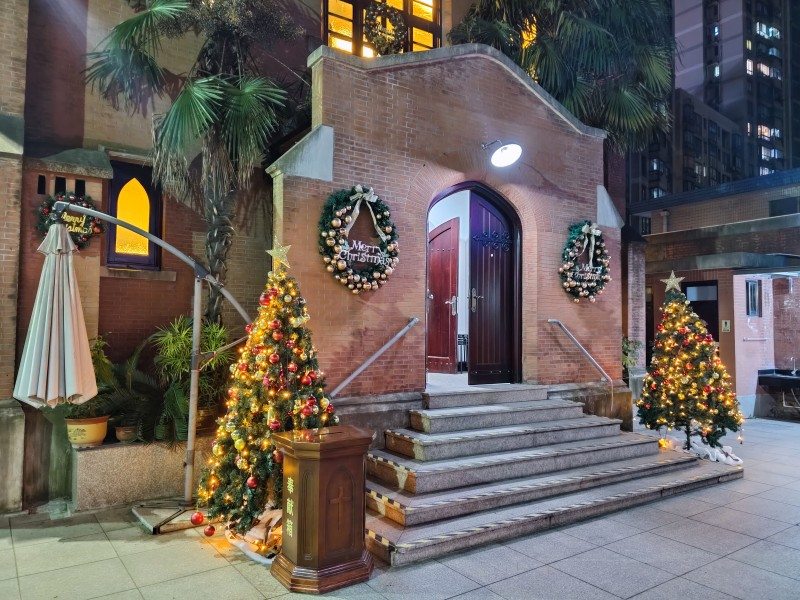As was suggested in an article issued on CNN, "Oxford English Dictionary Couldn't Pick Just One 'Word of the Year' for 2020" on November 24, the dictionary eventually gave the job up as it still couldn’t find a keyword with the approach of the end of the year.
The reason why the keyword couldn’t be found was that this year has seen too much change. It wasn’t simply the English language that has changed greatly but it was social realities behind the language that have changed drastically. There were big events that happened almost every month this year, catching people's attention and generating a lot of hot topics. To review them: the Australian bush fire in January, the acquittal of Trump impeachment case in February, the leading topic of COVID-19 in March, the English-speaking world dominated by "black lives matter" in June, the hot discussion on American mailing ballots and the Belorussian presidential election in August, the British large-scale COVID-19 test project named "Landing the Moon" in September, the leading topic of "super-plaguebearer" in October, and the American elections in November and December.
The word ‘pandemic’ was chosen as word of the year, according to an article issued by the Guardian, "Merriam-Webster and Dictionary.com Choose Same Word of the Year: pandemic".
Whether the key words of the year are selected or not, it means that this year is destined to be an extraordinary year. Not only changes have taken place in the economic field, but also the international order has also ended in ups and downs, and a new year is bound to begin in the ups and downs.
The spread of COVID-19 did not only change American society, but also directly influenced the result of the American election, which made the social development of this year accelerate the process of bringing forth the new normal. However, Christianity was also greatly impacted in this year, which also brought about changes from both macro and micro aspects.
As a result of the global economic downturn, the church's income has declined as a whole. Christianity had to reduce its support for foreign missions and daily activities because of the decrease in its economic income, which further reduced its international and domestic influence. Churches had to close because of social distancing and measures implemented by countries or regions. During the period of closing down, it did not only test the financial resources of a church but also the loyalty of believers. As a result, some churches could no longer rent meeting space because they couldn’t afford to pay for their venues. Some believers no longer went to their churches or chose other churches. Some pastors had to work in other churches as their original churches were no more. The whole internal development of the church was weak and believers' loyalty to the church had been greatly tested. Obviously, as a result of this test, the influence and strength of the church declined as a whole.
Socially, Christianity also lost favor. In the face of this huge social crisis, Christianity had nothing remarkable to do except calling for or even suing the government for closure issues (in some American States). There may have been few positive actions. Similarly, regardless of the grim situation in COVID-19 and the government's closure orders, some churches in South Korea still went out to gather in the name of freedom of belief - an incident in which a certain Christian church in South Korea became the source of virus infection because of its confrontation with the Korean government's inspection. Even some famous international priests took COVID as evidence of moral judgment, and thought that it was because they did not believe in Christianity or did not support Christianity so that the virus spread. This has hardly made the social evaluation of Christianity positive. Coupled with the incredible exaggeration of the pro-Trump Christians in the American election, the last veil of Christianity no longer exists in society. All these have made the social prestige of Christianity a milestone year in the history of Christianity.
In the micro-aspect, it is precisely the changes of every believer's attitude towards Christianity. In this year, because believers couldn't go out they listened to a lot of sermons online and watched many TV dramas. They so had more online exchanges with friends and found more life significance in family reunions or communicating electronically. Some believers were gradually disappointed with the overall performance of Christianity, some returned to their old social circle of friends, and some gave up Christianity completely. Because of the decline and marginalization of the church, some believers had to invest their efforts to gain social recognition by further distancing themselves. They had to build their sense of existence on the tension of alienation from their own environment. The more the society opposes them, the closer they seem to feel to the truth of God, so they continue these activities that are not in line with Christian characteristics in the eyes of others.
In this year, the church was in trouble, and Christians were also in some kind of hysteria.
Whether it is the plight of the church or the loss of believers and hysteria, the consequences of all these ultimately fall on the pastors in charge of the church.
In this year, in response to the survival crisis brought by COVID-19, pastors have been tenacious and demonstrated flexible survival skills.
The crisis of the church, big or small, is ultimately an economic crisis. The direct manifestation of the crisis may be doctrinal disputes, personnel disputes, theological disputes, etc., but the reasons are all related to the economy, and whoever has a strong economic foundation will eventually have the upper hand. Of course, there are some believers who insist on principles, but such believers or pastors are not in the mainstream. Because such a pastor must have one condition, that is, he or she has their own independent and free source of income. For those preachers who have no source of income and rely entirely on the church, it is obviously unrealistic to stick to their stand.
Therefore, this scene has become common this year. The preacher who claimed to only be in a certain Protestant denomination suddenly became a charismatic this year. The preacher who was sworn to be a charismatic suddenly became keen on another denomination. The pastors, who once believed in the theory of a Chinese priest, suddenly organized people to write articles to curse the priest. They didn't suddenly wake up and change their belief position, but someone helped them to. In the economic crisis, pastors showed both their loyalty of Christian faith and the instability of their position. In the sense of loyalty it is because they haven't been converted to other religions that they once called paganism. Of course, if other religions pay a lot of money, the pastor may not be able to hold on. In the sense of their unstable position it is because, in this year, they may have changed their position more than once.
The evangelists are fickle without stand, which gives Christianity its own social image, but is also given a negative connotation. In the eyes of society and believers, the performance of preachers who treat money like dirt in front of money really cannot stand the temptation. Of course, when people are in crisis, it seems a bit harsh not to let people change themselves to get through the crisis. But we must distinguish that today's Christian crisis has no pressure to lose one's head during the Roman Empire or the Reformation.
In this year, the pressure of preachers came from their inability to leave the church and return to society. In the face of crisis, they can only survive the economic crisis by changing their positions frequently.
In this year, with constant changes of preachers and Christianity, we saw the fact that the church is no longer the church of believers, but the economic entity on which preachers depend for survival. The preacher's control over and dependence on the church will inevitably make the church lose its independence thus losing its motivation and opportunity to change itself. Because no one will take their jobs and take the risk of change. Besides, the church is like meat - if you don't step up your care, you may have it on other preachers' eating boards at any time.
This year, for those large churches with strong economic strength, became an opportunity for them to expand at low cost.
For this year, we can use the word "change" to describe the state of the church. The church is constantly changing, changing in its position, denominations, doctrines and theology. Pastors changed the bottom line and attitude. Believers changed churches and beliefs. Society was constantly disappointed and even rejected Christianity.
In this year, Christianity was more on the defense than trying to deliver its ideas and services.
In this year, under the impact of COVID, Christianity will become a milestone in the historical development in the final result of the American election!
However, we believe that God is in charge of everything. No matter how it changes, God must reserve his own church and believers in the world!
- Translated by Charlie Li












